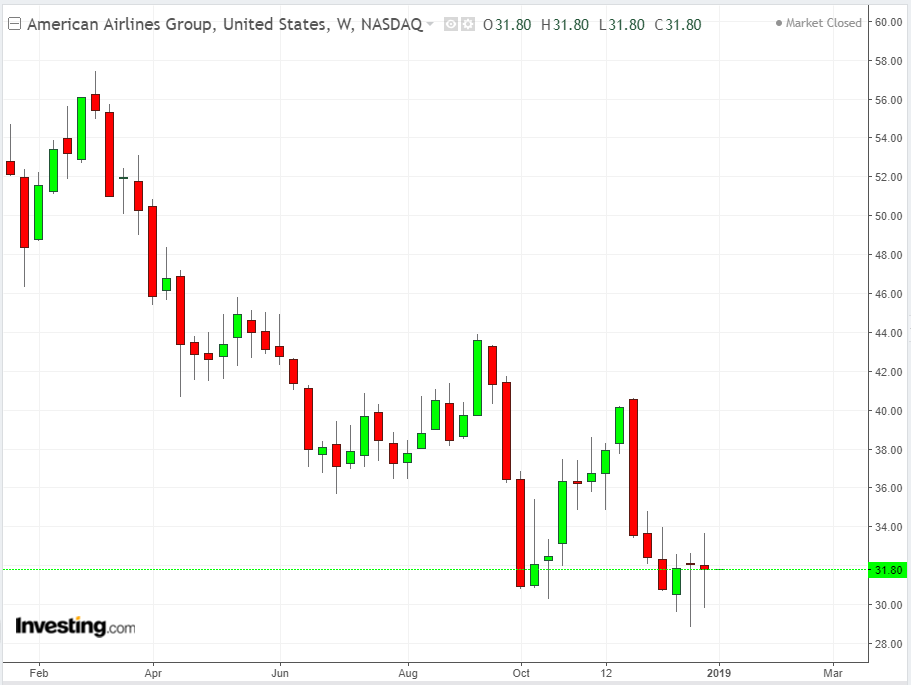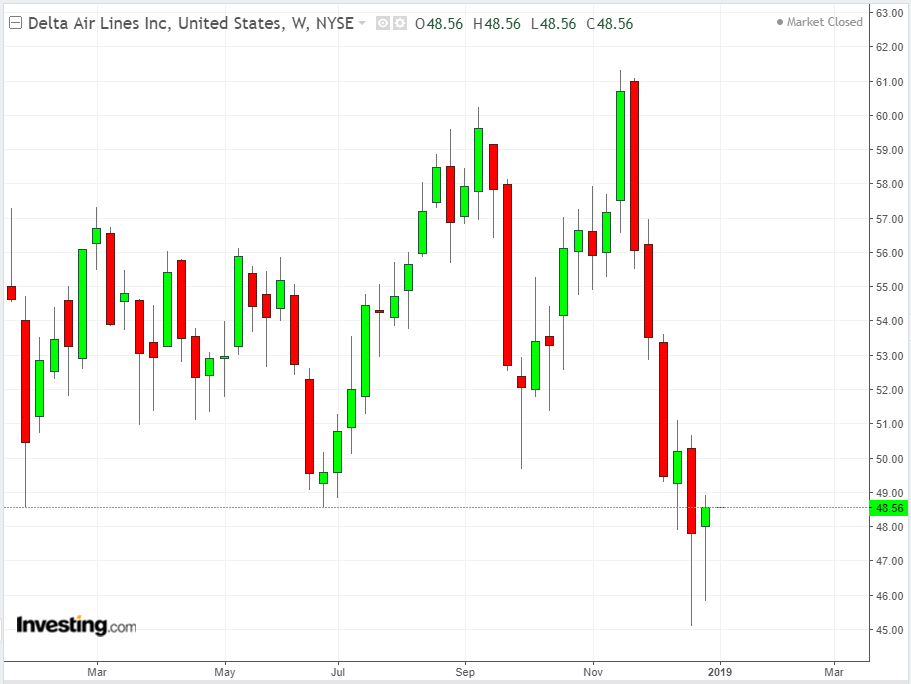Investors in airline stocks had a rough ride in 2018. Turbulence was spurred by a variety of industry specific issues including highly volatile oil prices, capacity expansions—which include adding routes and bolstering hubs, all of which cut into profit margins—as well as slowing demand from lucrative business travelers. Share prices remained under pressure throughout the year.
It doesn't seem as if 2019 will be any different. During the past 10 days, airline executives have trimmed profit forecasts in a bid to prepare investors for a more troubled journey ahead. Delta Air Lines (NYSE:DAL) jolted the sector on January 3, when the company cut its revenue forecasts for the second time in two months.
Fourth-quarter revenue from each seat flown a mile, referred to as unit revenue, will rise 3% from a year earlier, according to the Atlanta-based airline, down from a previously forecast 3.5% gain.
The news from the largest US carrier, American Airlines (NASDAQ:AAL) wasn’t promising either. Last week, the company trimmed its guidance for 2018, saying it now expects adjusted earnings of $4.40-$4.60 a share for 2018, down from an October forecast of $4.50-$5 a share.
American also cut its expectations for unit revenue. They predicted that fourth quarter unit revenue rose 1.5% from a year ago, after previously projecting it could climb as much as 3.5%.
According to American Airlines management, “a lower than anticipated improvement over a strong fourth quarter of 2017 in the domestic market,” is the main culprit for the guidance cut, which is similar to the reasoning used by Delta to explain its unit revenue miss.
Buy Shares After Recent Plunge?

The pullback in airline shares after their poor guidance has been tempting many investors to take a position in these stocks, which now appear to be cheap. Shares of Delta and American can be purchased for less than 10 times each company's forward price-to-earnings multiple.

Delta, which closed at $48.56 on Friday, is close to the lowest level since the summer of 2018. American Airlines, which finished last week at $31.80 has taken an even bigger hit, extending its plunge over the past year to more than 45%.
Despite the recent sector weakness, in our view, the majority of cyclical factors still don't favor taking a position in airline stocks. If oil prices don’t recover quickly they will continue to pressure airline margins at a time when the outlook for the global economy remains highly uncertain.
In the past, lower fuel prices helped increased air travel as travelers benefited from attractive fares in a booming global economy. This time, however, the situation is much more complicated. Although lower airfares might boost travel, airlines could be losing pricing power as slowing global travel demand—hurt additionally by factors such as trade wars—could leave more seats empty, further cutting into airline profits.
Bottom Line
For long-term, by-and-hold investors airline stocks have rarely been a good bet. That’s one of the main reasons these stocks are cheap.
During the past one year period, as a group, airline stocks delivered a negative return of 19.5%, more than double the losses for the broader S&P 500. Delta Airlines reports Q4 2018 earnings on Tuesday, January 15 before the open. Expectations are for EPS of $1.27 on revenue of $10.83B. American Airlines reports fourth quarter results on Thursday, January 24, before markets open. Consensus calls for EPS of $1.04 on revenue of $11.06B.
With markets and the economy on a highly uncertain path, no matter what the most recent results indicate, we advise investors to stay clear of airline stocks in 2019.
